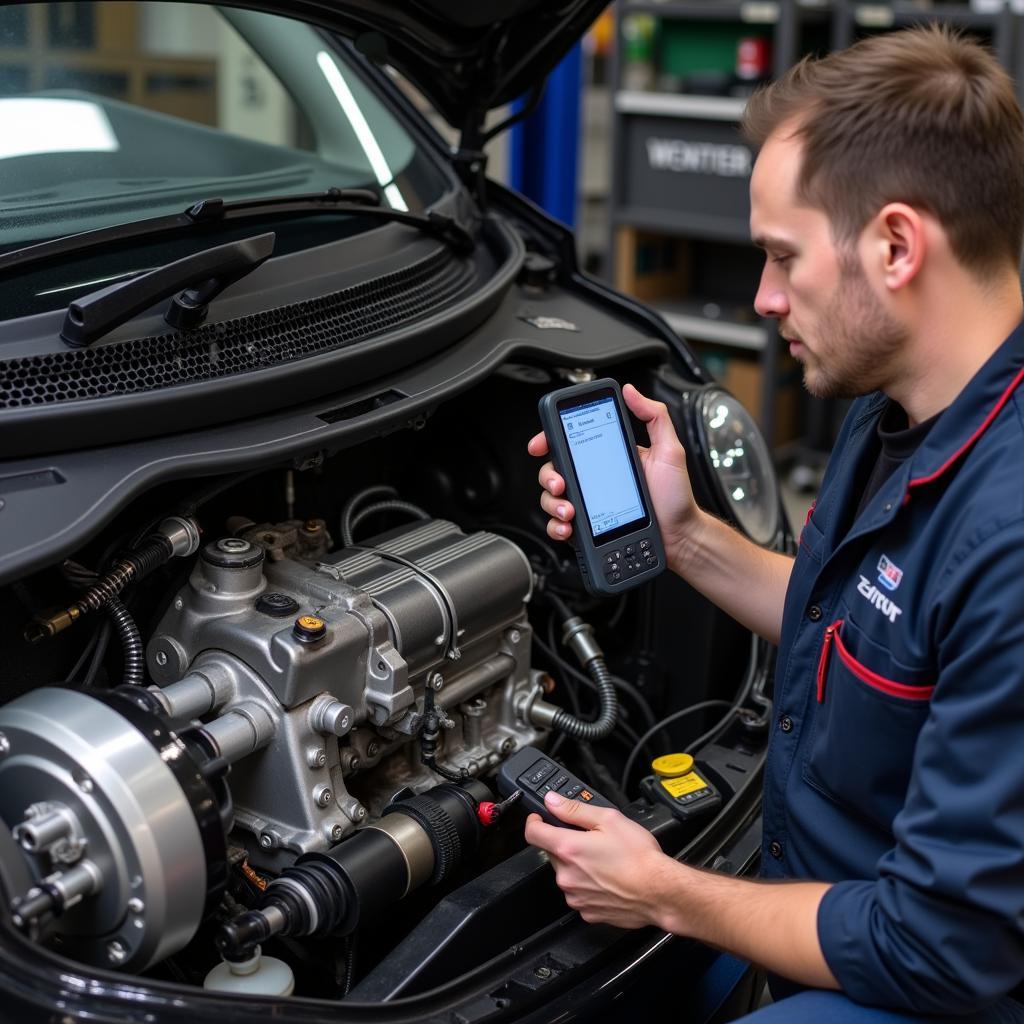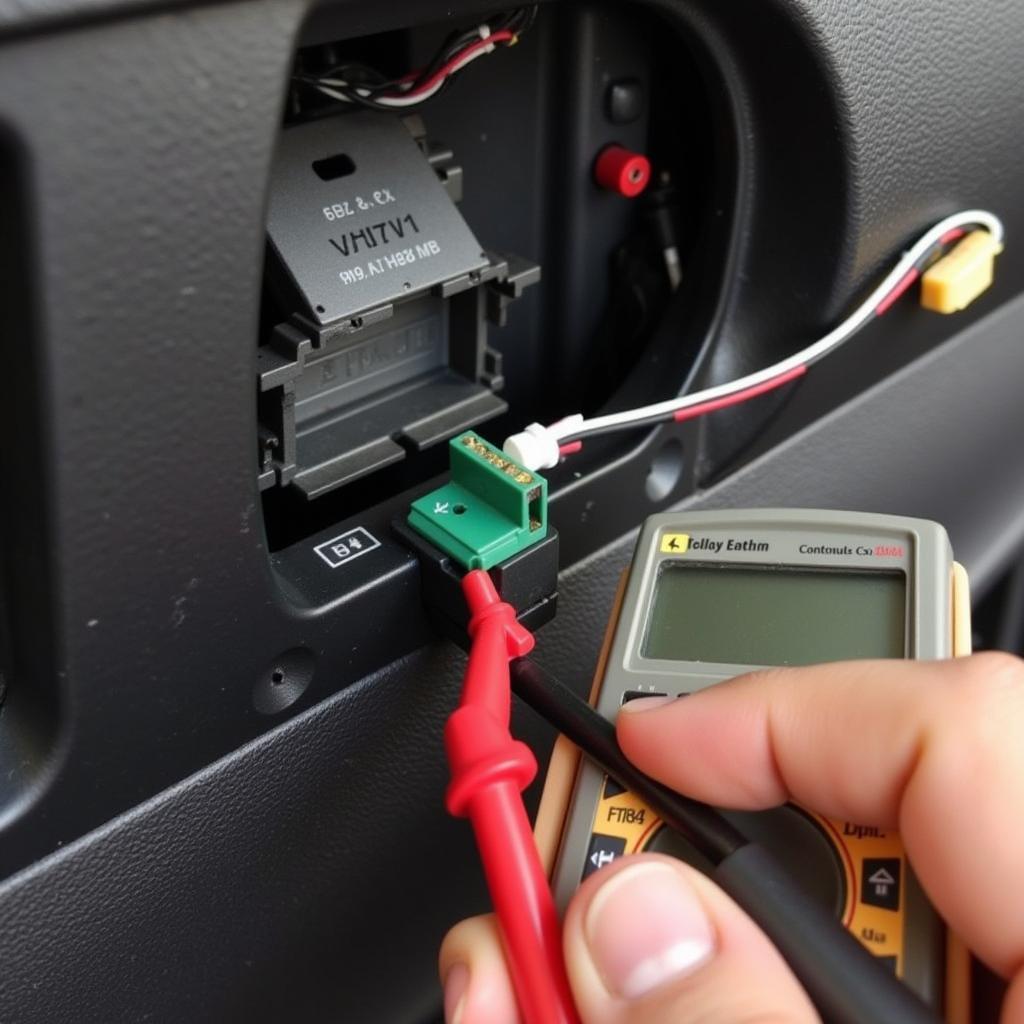Mercedes Smart cars are known for their compact size and fuel efficiency, but like any vehicle, they can experience transmission issues. Understanding these problems and how to address them can save you time, money, and frustration.
Common transmission problems in Smart cars range from minor glitches to major malfunctions. These issues can manifest in various ways, impacting the overall drivability and performance of your vehicle. Whether you’re a Smart car owner, a mechanic, or simply interested in learning more, this guide will provide valuable insights into the world of Mercedes Smart Car Transmission Problems.
Identifying Common Mercedes Smart Car Transmission Problems
Several symptoms can indicate a transmission problem in your Smart car. Recognizing these signs early can prevent further damage and costly repairs.
- Jerky Shifting: If your Smart car jerks or hesitates when shifting gears, it could signal a problem with the transmission’s internal components, such as the clutch actuator or the control unit.
- Slipping Gears: A slipping transmission can feel like the car is momentarily losing power or revving higher than usual without accelerating. This can be a serious issue requiring immediate attention.
- Rough Shifting: Difficulty shifting gears or experiencing grinding noises during shifting can indicate worn synchronizers or low transmission fluid levels.
- Delayed Engagement: If there’s a delay between shifting into gear and the car actually responding, it could point to a problem with the transmission’s valve body or solenoids.
- Unusual Noises: Whining, humming, or clunking noises coming from the transmission area can indicate various issues, from worn bearings to damaged gears.
- Check Engine Light: While not always directly related to the transmission, a check engine light can sometimes indicate transmission-related problems. Using an OBD-II scanner can reveal specific error codes related to the transmission.
What Causes Transmission Issues in Smart Cars?
Understanding the root causes of transmission problems can help you prevent future issues and make informed decisions about repairs. Some common causes include:
- Low Transmission Fluid: Insufficient transmission fluid can lead to overheating, increased wear and tear, and ultimately, transmission failure. Regular fluid checks and changes are essential.
- Worn Clutch Actuator: The clutch actuator is a common failure point in Smart car transmissions. Its malfunction can lead to jerky shifting or difficulty engaging gears.
- Faulty Transmission Control Unit (TCU): The TCU is the brain of the transmission, controlling its operation. A faulty TCU can cause a wide range of problems, from erratic shifting to complete transmission failure.
- Worn Synchronizers: Synchronizers ensure smooth gear changes. Worn synchronizers can lead to grinding noises or difficulty shifting.
- Mechanical Damage: Physical damage to the transmission, such as cracked gears or damaged bearings, can result from impacts or excessive wear and tear.
Troubleshooting and Repairing Smart Car Transmission Issues
When faced with transmission problems, several troubleshooting steps can be taken before resorting to costly repairs.
- Check the Transmission Fluid Level: Ensure the transmission fluid is at the correct level and in good condition. Low or dirty fluid can contribute to many transmission problems.
- Scan for Error Codes: Using an OBD-II scanner can reveal specific error codes related to the transmission, helping diagnose the issue.
- Inspect the Wiring and Connectors: Check for any loose or damaged wiring and connectors related to the transmission.
- Consult a Specialist: If the problem persists, it’s best to consult a qualified mechanic specializing in Smart car transmissions.
 Troubleshooting Smart Car Transmission Issues
Troubleshooting Smart Car Transmission Issues
How to Prevent Transmission Problems in Your Smart Car
Preventive maintenance is key to extending the life of your Smart car’s transmission. Following these tips can help avoid costly repairs:
- Regular Fluid Changes: Follow the manufacturer’s recommended intervals for transmission fluid changes.
- Avoid Aggressive Driving: Harsh acceleration and sudden stops put extra stress on the transmission.
- Check for Leaks: Regularly inspect for transmission fluid leaks and address them promptly.
- Warm Up the Engine: Allowing the engine to warm up before driving, especially in cold weather, can help protect the transmission.
Conclusion
Mercedes Smart car transmission problems can be frustrating, but understanding the common issues, their causes, and preventive measures can help you keep your Smart car running smoothly. Regular maintenance and prompt attention to any warning signs are crucial for avoiding costly repairs and ensuring a long lifespan for your transmission. For any assistance or further questions, don’t hesitate to contact us at AutoTipPro at +1 (641) 206-8880 or visit our office at 500 N St Mary’s St, San Antonio, TX 78205, United States.
Similar to the issues found in bmw used cars problems, transmission problems can significantly impact the driving experience.






Leave a Reply